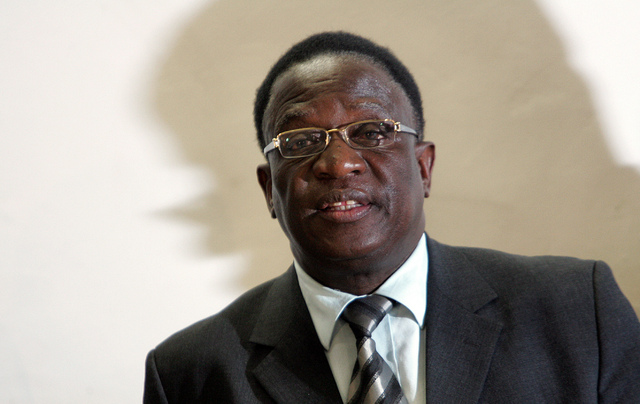As a frontier market, the countries of Africa represent both tremendous opportunities and tremendous risks. On the risk side of the ledger are all the usual complications of international trade and investment compounded by the problems inherent in a developing, emergent continental market consisting of 54 countries and 1.1 billion people – it’s a lot to keep track of.
Luckily, the ups and downs of the African currency markets aren’t one of them if you know where to look. To help with that, AFK Insider has compiled all the news you need to know now in order to slim down your currency risk in the week ahead. Let’s see what’s happening out there.
For some, breathing room at last…
For investors long worried about the impact falling oil and gas prices will have on emerging Africa, we are now swiftly approaching the moment of truth: Brent crude is below $65/bbl.
How long it may stay there or whether it will in fact go lower is anyone’s guess, but so long as Saudi Arabia is content to use oil as a weapon against its political opponents in the Middle East (Iran and Russia by way of Syria) and as a way to block the further development of US shale oil resources, then investors should expect the current price situation to continue for some time.
In other words, we are now in a much reduced price environment for the black stuff, and the only question remaining is who wins and who loses?
In Africa, the obvious beneficiaries are those countries that are not oil producers, meaning that out of the continent’s big three regions it is Southern Africa and East Africa that are most poised to benefit.
However, they will benefit in different ways that may not be readily apparent. This is largely due to how the economy in these two regions are structured and which sectors in each stand ready to benefit or be hurt by the rapid drop in the price of oil on global markets.
In South Africa, the rapid drop in the price of oil will no doubt be a godsend for the country’s manufacturers, consumers, and transport sectors, all of which will benefit from lower fuels costs.
Although lower commodity prices may also hurt South Africa, which produces a lot of gold and platinum, the general impact of much reduced oil prices on the country’s critical mining sector should be beneficial.
After all, mining consumes a lot of fuel and petrochemical products while the demand for gold and platinum should remain steady or even pick up some as lower fuel prices leave consumers elsewhere capable of buying more of what South Africa produces.
The same broadly applies to South Africa’s manufacturing and transport sectors, both of which are important. Shippers will clearly benefit from lower fuel costs, and factories will surely benefit as lower costs and higher consumer demand make their impacts felt.
These should all have a positive impact on the South African economy, those like Botswana that are tied to it, as well as their respective currencies. All this isn’t in question, but what South Africa does in the meantime as it is given this macroeconomic breathing room is.
That’s because as the IMF recently warned, the major impediments to increased growth in the country is not due to high oil prices. Rather, it is internal structural constraints that are hampering output, in particular “wage strikes, transport bottlenecks and labor market issues, coupled with the need to improve education and training.”
All this, implies the IMF, is putting immense pressure on the rand, which recently hit a six-year low. Couple that with power cuts and black outs which are increasingly crippling and the stage is set for much of the opportunity opened up by lower oil prices to be missed as the country wallows in problems mostly of its own making.
East Africa Slow Down
In East Africa, meanwhile, the oil-price collapse will have somewhat different impacts. The first is that the emerging oil boom that is developing both offshore and onshore will be greatly slowed down, if not scuttled altogether.
The recent announcement by African player Tullow Oil that it would be dramatically cutting its exploration budget next year should serve as warning that much of big oil will now look much more skeptically at expensive African oil and gas projects, especially offshore.
Onshore, especially in Kenya’s Lokichar Basin, prospects are brighter as costs are lower, so that nascent oil boom may continue.
In the meantime, lower oil prices will mean Kenya’s vital shipping industry will be given much wider latitude to maneuver. This should help especially with international air freight and travel, which has Nairobi as a major hub.
Agriculture, too, should also see important benefits as input costs for things like fuel and fertilizer decrease and shipping costs make it cheaper to transport goods to markets in the Middle East, India and Europe.
Kenya, therefore, should possibly see the most benefit from lower oil prices. Look therefore for East African currencies to rise in the future as their economies grow stronger.
Finally, what of Nigeria and West Africa? There the situation is rather grim as West Africa is far more dependent upon oil than elsewhere in Africa.
Nigeria has already more or less warned that the naira may eventually be devalued and at current prices the country’s rainy-day fund simply isn’t big enough to keep government spending going for very long.
This will inevitably mean spending cuts and tax increases elsewhere as the government struggles to compensate, inevitably putting further downward pressure on the country’s economy.
So, to sum up, the price collapse will obviously hurt Africa’s oil producers, which are all likely to head into recession if they are not there already. The collapse will also help the non-oil producers insofar that oil imports make up a heavy burden and lower fuels costs allow for greater consumer demand for the products they produce.
However, as the case of South Africa shows, lower oil prices will have to contend with internal problems and structural constraints on growth that may overwhelm the impact of less costly crude. Investors’ best bet is to look for those countries, like in East Africa, that lack these internal problems and are not yet dependent upon oil for their economic survival.
Jeffrey Cavanaugh holds a Ph.D. in political science with a specialization in international relations from the University of Illinois at Urbana-Champaign. Formerly an assistant professor of political science and public administration at Mississippi State University, he writes on global affairs and international economics for AFK Insider and Mint Press News.



